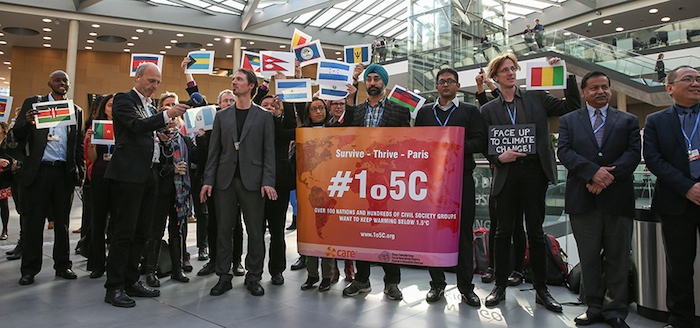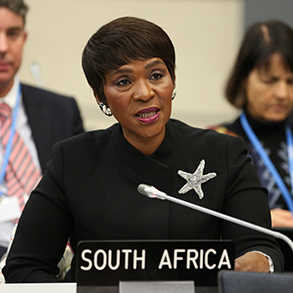
By Olumide Idowu
After five days of careful negotiations with consensus reached on some options, the Bonn meeting ended Friday with the issuance of a draft text of the new, universal climate change agreement and its accompanying decisions.
The draft is to be dispatched to Paris, where Ministers will begin to examine the text at the pre-COP ministerial meeting, taking place November 8-10 before the discussion moves to COP21 on November 30 and a final agreement will be reached in December 2015.
With discussions on other high level issues carried out without the involvement of ministers and heads of state, parties took considerable ownership of the text, building out their bloc positions and deepening a shared understanding on some contentious topics.
The draft text of the agreement enjoys full ownership by the governments of the world and represents a balanced text that will constitute the starting point for the final round of negotiations.
UNFCCC Executive Secretary Christiana Figueres said that the draft text includes additional options that reflect the concerns of all countries. “We now
have a Party-owned text that is balanced and complete. The challenge for governments is to bring it down to a much more concise and coherent form for adoption in Paris.”
French Climate Change Ambassador Laurence Tubiana said: “We have a manageable text for further work in Paris. While much work remains, the text is a good basis for negotiations and negotiations need to start from the first day of the conference.”
Both Ms. Figueres and Ms. Tubiana agreed that the political process between now and the beginning of the Paris Summit will be central to the success of the meeting.
For the civil society, every optimism about the road to Paris from Bonn was dampened with the decision of the Co-chairs to lock out observers from the negotations.
CSO Members were left with little or no choice than to spend the last three days camping out in the basement of the conference centre. Despite strong

speaking on behalf of the G-77/China (PHOTO: IISD)
objections from the G77+China and Mexico—the co-chairs insisted on barring observers from the negotiations.
Civil society leaders believe this action runs contrary to the international principles and norms surrounding public participation. The Convention itself provides that Parties: “shall … encourage the widest participation in this process, including that of non-governmental organisations.” The negotiations leading to the adoption of the Nagoya Protocol, a supplement to the UNFCCC’s sister convention, the CBD, involved stakeholders through the entire process.
The further argued that the decision ignores the vital role that civil society and indigenous peoples play in the negotiations.
Contrary to Japan’s argument, the absence of stakeholders is what truly impedes effective negotiations, not their presence. “We provide technical support, thought leadership, bridging solutions, and amplify the voices of the people who are most vulnerable to but least responsible for the climate crisis”they added.
Alix Mazounie of RAC France says “the French presidency will need to play a critical role. Until the very last minute of the very last night of the Paris COP, they will be the gate-keepers of ambition and fairness. A success in Paris is not only about signing a universal deal, but about signing an ambitious universal deal. And while some countries may have chosen to keep us out of the room here in Bonn, they won’t be able to avoid us in Paris.”
“We will be massively taking to the streets on November 28th and 29th—not just in Paris, but in cities all over the world. With our calls for climate action, we will make our voices heard throughout the talks. At the close of the COP, we will take to the streets of Paris again, reminding the leaders that we will not stop demanding progress and holding them accountable,” Mazounie said.
“Let us not underestimate what is at stake here. Impacts are already hitting home, affecting the world’s most vulnerable people and ecosystems first and foremost. That is why a Paris agreement must feature solutions to address the loss and damage caused by mounting climate impacts, affecting people and places from Manila to California,” Tasneem Essop, Head of Strategy and Advocacy for the International World Wide Fund for Nature’s (WWF) stated.
“We know that finance is left to the last moments of negotiations and used as a bargaining chip. But governments need to know that this last moment is now. They now only have just six weeks to figure that out. We need to be clear about the scale, the predictability and additionality of the financial support needed to help countries cut emissions and adapt to the devastating impacts of climate change, she added.











